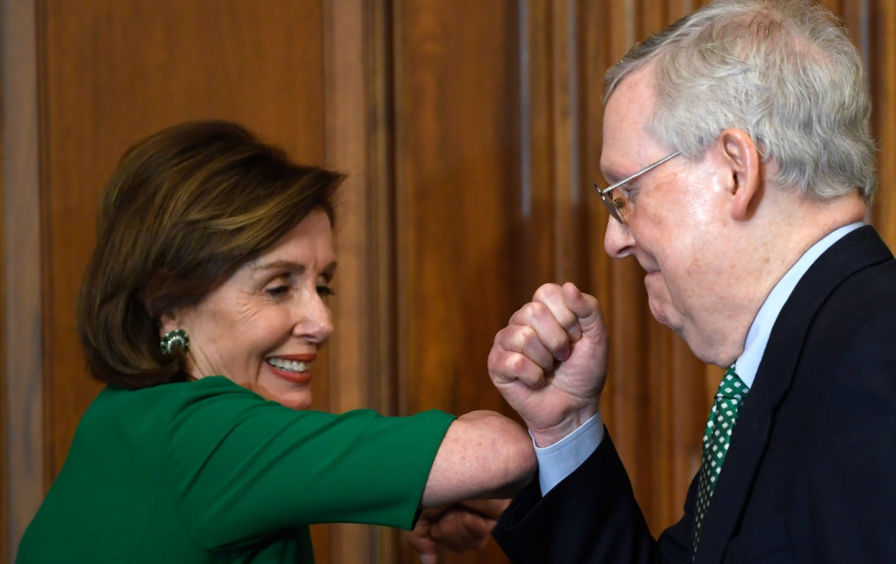Congress CARES, historic work
Pelosi and McConnell elbow in Washington after coming to an agreement and how Congress will respond to the COVID-19 crisis. After failed attempts the two celebrate. The House plans to vote on Friday.
March 29, 2020
As the nation with the most COVID-19 cases in the world, Americans desperately need relief. Following three efforts to respond directly to the COVID-19 crisis, the latest measure passed with a vote of 96-0. Known as the “Coronavirus Aid, Relief, and Economic Security Act” (CARES Act), this two trillion dollar economic rescue plan serves to provide financial relief for millions of American households affected by the COVID-19 quarantine. With 68,440 confirmed cases and 994 deaths reported in the United States [at the time of publication], the CARES Act will provide economic relief to the U.S. for at least three months.
The fear of workers remaining on unemployment benefits held the bill up on Wednesday with the vote occurring later that day. While other setbacks arose from New York Governor Cuomo and Representative Alexandria Ocasio Cortez, who viewed the bill as insufficient to address the crisis, the bill eventually made it through the Senate with plans of further legislation.
“It’s a historic day because it matches a historic crisis. And our people need help,” Senate Minority Leader Chuck Schumer said.
The bill enacted major reliefs like small business interruption loans (which would expand the eligibility for smaller businesses to receive loans of up ten million dollars), expanding of unemployment benefits, stimulus checks depending on family size and waiving required minimum distributions to help the banks; other notable additions to the act include special rules for retirement accounts, moving charitable contributions above the line, suspending limits on charitable contributions, a payroll tax credit for employers and delay of payroll tax payment. The medical additions to the act include providing no-cost testing or preventive services for COVID-19 and grants for hospitals and health service providers, along with other forms of relief to states.
The bill made its way to the House on Friday with slight delays: Kentucky representative Thomas Massie called for a recorded vote on the bill, which would require the presence of the majority of House members. The measure did not receive support and the bill passed. The bill only needs to be signed by President Trump, who publicly supports the Act. The historic bill became a beacon of hope after 3.3 million Americans applied for unemployment last week, a record low since 1967. Politicians believe that the CARES Act will work to provide relief in such a devastating situation, but will not stimulate the economy, only cushion Americans.




